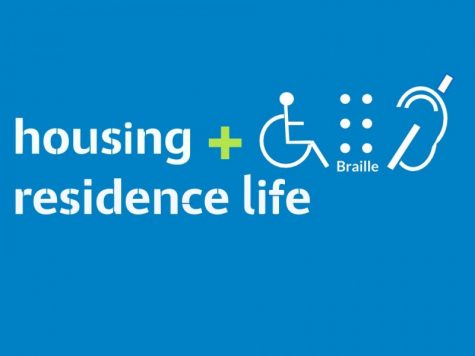Does housing fit the needs of all students?
March 14, 2019

A month ago, returning students received the same email, titled “Apply for Housing for 2019-2020 Today!” While all students across campus must decide where they will live next school year, the process for some comes with fewer options and more factors to consider than most.
For students who have disabilities, many concerns include the accessibility of the their residence hall. According to the Americans with Disabilities Act, signed into law by President George H. W. Bush on July 26, 1990, all those who have a disability are protected from discrimination and can request reasonable accommodations, provided they do so on their own.
Tulane administration has made it easy for students with disabilities to seek the accommodations they require, thanks to the Goldman Center for Student Accessibility. The university complies, as is mandated, to follow the “the Americans with Disabilities Act (Pub. L. No. 101-336), Section 504 of the Rehabilitation Act of 1973 (Pub. L. No. 93-112, § 504, as amended), and state and local requirements regarding individuals with disabilities.”
While the university does its best to meet these requests, there are still improvements to be made. Five residential halls, Aron, Irby, Josephine Louise, Phelps and Warren, all do not have elevators.
Though most students who have disabilities are not placed in those dormitories, and are placed on the first floor if so, there is an burden on students who encounter injurious circumstances after the school year has already started.
If someone who lives in those dormitories ends up breaking a leg or fracturing a foot in the middle of a school year, they might be unable to climb up the stairs to reach their room. Furthermore, a room switch may be inconvenient for a person who unexpectedly finds themselves temporarily disabled.
Many of the residence halls on campus were built decades ago and lack more contemporary features when compared to other halls, such as Warren, which was constructed in 1927. While the university is currently developing a new dining hall titled The Commons among other planned projects and has plans to establishing a new freshman quad, some feel as though more attention should be paid to updating some of its other buildings on campus. One of these students, freshman Doris Cai, believes the university should focus on some of its more critical problems.
“While I like the concept of a new dining hall, Tulane should update buildings that are not accessible since they block potential opportunities for students on campus,” Cai said.
Residence halls should not be the only concern for administrators. Many buildings on campus which have multiple floors also lack elevators, such as Norman Mayer and Dinwiddie Hall. While classes are usually appropriately placed to accommodate those with disabilities before the semester even starts, the university might not be quick to shuffle around classrooms for those who are injured after the semester begins.
While suddenly renovating every single building lacking an elevator is both impossible and troublesome, the university should take into account the possible range of problems that might occur in the middle of the school year and attempt to lessen the burden on those who suffer injuries instead of giving them room changes.
“Tulane does a good job to meet the needs of students who request them,” Patrick Randolph, director for the Goldman Center for Student Accessibility, said. “But there are some limitations to what they can or cannot do. The university has a comprehensive plan to provide long-term suitability and intentionality to meet the needs of all students in order to ensure access to all phases of what students can do on campus.”
Residence halls are a core component of a student’s college life, and that should be appropriately acknowledged.






















Tammy ware • Mar 14, 2019 at 4:30 pm
I also find this year’s application for housing next year was a joke for some students where housing was filled in 2 hrs,of a allotted time slot oh 900 am to 4 pm.again policy sounds good looks good on paper but doesnot work in the real world.
STUDENTS SHOULD DEMAND BETTER TREATMENT .Sorry if I have offended anyone,but that’s the truth.
Sincerely, Tammy
Tammy ware • Mar 14, 2019 at 4:28 pm
Tulane definitely doesnot consider housing accommodation for students needs .I believe if a student is accepted and choose to live on campus that student should be accommodated.whether they are a freshman,sophomores, junior ,or senior.college is stressful enough without having to worry where you are going to live.
I believe housing has handled this very poorly and doesnot keep in mind the disadvantage students who cannot afford to live off campus,or for a variety of other reasons.
I am certain others feel the same way,but just have not voiced the opinions.
I also find this year’s application for housing next year was a joke for some students where housing was filled in 2 hrs,of a allotted time slot oh 900 am to 4 pm.again policy sounds good looks good on paper but doesnot work in the real world.
STUDENTS SHOULD DEMAND BETTER TREATMENT .Sorry if I have offended anyone,but that’s the truth.
Sincerely, Tammy